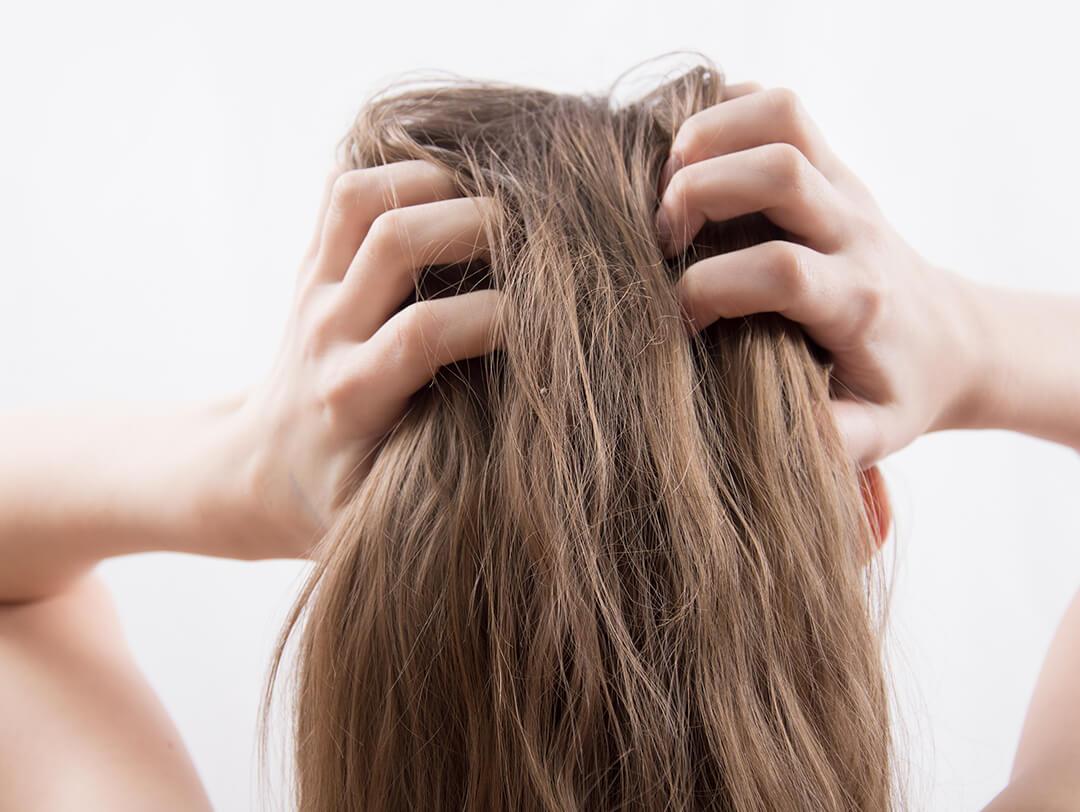Dandruff, Be Gone! 10 Ways to Stop Your Scalp From Flaking



Brittany Leitner


Oh, dandruff—we’ve all been there, and we know it can be frustrating. For some, it only occurs occasionally in the form of a dry scalp. For others with chronic skin conditions like psoriasis or seborrheic dermatitis, fighting flakes is an ongoing battle. There are a few reasons dandruff can flare-up: stress, the weather, not shampooing often enough. Most frequently, it’s caused by a yeast-like fungus that’s attracted to oils on your scalp.
"The right amount of oil helps the scalp stay healthy," dermatologic surgeon Dr. Jason Emer, MD, explains. "However, if there is an overproduction of oil on the scalp, yeast can lead to flaking and redness known as dandruff." If you’re dealing with dandruff, there are many ways to treat it—and we’ve rounded up 10 things you can do at home to help beat dandruff for good.


It's about glam time you treated yourself.
MEET THE EXPERT
Dr. Jason Emer is a dermatologic surgeon based in Los Angeles. He runs his own practice in Beverly Hills and regularly shares skincare tips and insight into skin treatments on his popular Instagram page.
1. Exfoliate your scalp.
Your scalp benefits from exfoliation just like the skin on your face and the rest of your body. Exfoliating your scalp is a great way to fight dandruff. Exfoliating can help control the overproduction of buildup and sebum, which feeds malassezia furfur yeast (the kind often found on dandruff-prone scalps). "Exfoliating with a brush or enzymatic spray (like this) can help reduce oil buildup and increase cell turnover on the scalp," Dr. Emer explains. But he warns not to overdo it: "Exfoliating more than a few times a week may cause the scalp to produce more oil, which will worsen the issue." If you're looking for the best scalp scrubs, head here for a few of our top picks!
2. Try an apple cider vinegar hair rinse.
It seems apple cider vinegar has so many healthy uses—including helping to balance your scalp. While there is limited medical research on the effects of apple cider vinegar as a dandruff solution, this kitchen staple has been a popular dandruff home remedy for years. Apple cider vinegar can help to rebalance your scalp’s natural pH levels, and it has natural antibacterial and antifungal properties that can fight off dandruff-causing bacteria.
3. Reach for a dandruff shampoo.
Unlike your everyday shampoo, dandruff shampoos contain specific active ingredients proven to fight off dandruff by killing bacteria and chemically removing dead skin cells. A few ingredients to look out for are antibacterial and antifungal agents like zinc pyrithione, selenium sulfide, ketoconazole, and salicylic acid. Dr. Emer recommends using an anti-dandruff shampoo at least twice weekly, and on the days you exfoliate your scalp to help control yeast production. Looking for some of the best dandruff shampoos? Check out a few of our favorites.
4. Avoid scratching your scalp.
We know, it’s hard. An itchy scalp is one of the most common side effects of dandruff, but excessive scratching can increase inflammation, and make your scalp feel tender, sore, and uncomfortable. Too much scratching can even result in wounds and scabs. Additionally, scratching will cause flaking, which will make dandruff more visible in your hair and on dark clothing. Itchiness is often heightened by trying to use too many different products and remedies all at once. So while it's tempting to try everything to eliminate dandruff quickly, be sure not to overwhelm your scalp.
5. Try an aloe vera treatment.
Just like your skin after a hot day, your scalp loves aloe for its soothing effects. "Aloe vera may reduce inflammation and calm itching on the scalp," Dr. Emer says. "Some research shows that aloe vera is antifungal and antibacterial, which also will decrease the risk of developing dandruff or a flaky scalp. Aloe vera is abundant in vitamins and minerals, which are essential for healthy hair. It also has a soothing, moisturizing, and protective effect on hair and skin, giving hair elasticity and strength, and preventing breakage." The best (and easiest) way to reap the benefits of aloe is to apply it directly to your scalp. Be sure to massage a generous amount of aloe into your roots and let it sit for 30 minutes to an hour. Then rinse with a mild shampoo. Repeat this natural scalp mask two to three times per week.
6. Use coconut oil.
"Dandruff is caused by an excessive amount of natural oil on the scalp, which leads to redness, itching, and flaking. Coconut oil can help mask dryness and control your scalp's natural inclination to produce more oil when it's irritated," Dr. Emer says. "Like aloe, coconut oil has antifungal properties that may help combat a yeast-like fungus that causes dandruff." You'll want to use coconut oil on the scalp just like you would aloe vera—as a mask a few times per week.
7. Wash your hair more often.
Normally dermatologists and hair experts tell you not to shampoo your hair every day to prevent your hair from being stripped of its natural oils. However, if you have dandruff, not shampooing frequently enough can make dandruff worse due to oil production and dead skin cell buildup—two key factors dandruff-causing yeast and fungi need to survive.
8. Try out tea tree oil.
Tea tree oil is another popular natural remedy for dandruff relief thanks to its antimicrobial properties. The best way to use tea tree oil in your dandruff-fighting hair care routine is to look for a shampoo that features it as a main ingredient, or apply a few drops of tea tree essential oil to your current shampoo, shake it up, and wash as you normally would.
9. Switch up your style.
If you're struggling to not itch your scalp, try styling the hair in a way that makes scratching more difficult. Try sweeping second-day hair up into a messy bun or French braids. You can also try wearing a hat, scarf, or headband as a physical barrier between your fingernails and scalp.
10. Use salicylic acid toners or serums.
A chemical exfoliant like salicylic acid can be great for dandruff, as it helps to slough away dead skin cells without being harsh or abrasive on your scalp (like some physical exfoliants). Applying a potent toner or serum directly to your scalp will also help gently dissolve dead skin cells and promote a healthier scalp overall. "Using these products on the scalp at least twice weekly can keep the scalp soft and the hair follicles strong," says Emer. He recommends using a toner that's water-based rather than alcohol-based to avoid drying out the scalp.
Want in on all the best hair care products by joining the IPSY Glam Bag fun? Take our Beauty Quiz now to get started. Already an Ipster? Refer your friends to earn points, which you can use toward products. Either way, don’t forget to check us out on Instagram and Twitter @IPSY.
Like this article? Share it with your friends by clicking the icons below!
Liked this post? Share!
Related Stories


Hair
6 Hair Trends Set to Take Over in 2026, From Bixie Cuts to Bouncy Blowouts
Published on Dec 5, 2025 • 5 min read


Hair
21 Easy Hairstyles to Enhance Your Natural Curls and Coils
Published on Dec 3, 2025 • 11 min read


Hair
The Ultimate Guide to Styling Short Hair
Published on Dec 1, 2025 • 11 min read


Hair
From Bangs to Blonde: The Hair Trends Taking Over 2025
Published on Dec 16, 2024 • 5 min read


Hair
Scalp Exfoliation Is the Key to Healthier Hair—Here’s How to Do It Correctly
Published on Nov 21, 2025 • 9 min read


Hair
The 10 Best Hair Masks and Conditioners to Promote Hair Growth
Published on Mar 11, 2024


Hair
20 Trendy Hairstyles That’ll Make You the Life of the (Holiday) Party
Published on Oct 15, 2025 • 9 min read


Hair
Easy Thanksgiving Hairstyles to Look Polished While You Feast
Published on Oct 2, 2025 • 6 min read


Beauty Picked Just for You
Get 5 products worth up to $70
Plus exclusive access to epic deals up to 80% off
Starting at just $14/month. Cancel anytime.